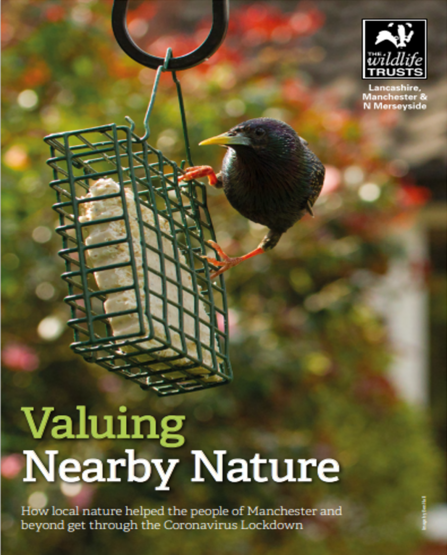The new report, which has been sent to 10 Downing Street and Defra, outlines how wildlife helped people to overcome the stress and loneliness of lockdown and, in some cases, offered benefits for serious mental health issues. One individual even went on to tell us that nature “has saved my life.”
And that added interest in nature will have had major benefits for plants and creatures, as people put food on bird tables and created wildlife-friendly areas in gardens and parks.
According to the report which had over 1,200 responses, 99% of respondents told us that connecting with local wildlife and outdoor spaces during the coronavirus restrictions has been 'Very Important' or 'Important' to them.
The survey came about after we noticed more people than ever before getting in touch to say they were seeing wildlife more frequently and that the birdsong appeared to sound so much louder this spring.
My Wild City Project Officer Hilary Wood said: “This report shows how necessary a nature connection is for people's quality of life in and around Greater Manchester. Nearby Nature needs to be prioritised in the City Region's Covid Recovery Plans to ensure everyone has the opportunity to connect with nature.”
The report comes at a time when environmental organisations and charities like The Wildlife Trust are battling to protect and improve greenspaces amidst increasing development threats like HS2 which are likely to have huge, lasting impacts on our precious wildlife.
Daveen Wallis, Director of Nature and Wellbeing at The Wildlife Trust for Lancashire, Manchester and North Merseyside said: “At a time when we are facing global health, climate and ecological emergencies, people are turning to nature for their health and wellbeing. We need to harness this interest and turn this connection into positive ways people can take action locally to help us address climate change and species extinction.”

